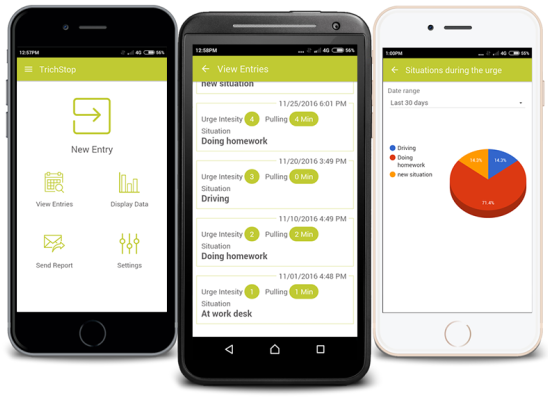How Long Do I Need to Go to Therapy?

Online test
Find out the severity of your symptoms with this free online test
How long will I be in therapy?
It’s a question that a lot of people have when they’re deciding about starting therapy. And it’s a legitimate one.
One of the classic stereotypes about therapy is someone spending weeks and weeks lying on a therapist’s couch rehashing their childhood. “And how do you feel about that?”
Today’s therapy recognizes that most people don’t have the time or the inclination for that style of therapy. They want to know that there is a beginning and an end to their therapy. They want to know that they can fit therapy into their already overscheduled days. They want tools that they can use and deal with the issues most concerning to them.
Not knowing what to expect in terms of time investment is a big reason why people avoid getting the help they need. While there is no one single answer for all, there are parameters that can help you choose the option that is best for you without spending months or years on the couch. So, just how long does therapy take and what can you expect?
It Depends
The time you will spend in therapy depends on a lot of factors including:
- The reason you’re seeking therapy
- Type of therapy you’re receiving
- Your progress
- Your engagement in the process
The” how long” question is something researchers have asked too.
- Findings suggest that treatment duration is significantly dependent on progress and dropout rates.
- On average, about 50% of people attend therapy for 15-20 sessions. Of course, some approaches have more specific session protocols.
- People with co-occurring mental health issues tend to require longer treatment time (e.g., 12-18 months) for therapy to be effective for them.
- Some people prefer longer duration treatment in order to maximize and maintain treatment gains. They may opt to remain in treatment for 6 months or more for 20-30 sessions.
- Short-term approaches like Cognitive Behavioral Therapy (CBT) or Habit Reversal Training, often used to treat hair pulling or skin picking, generally consist of about 10-20 sessions, although that number can vary.
When Will It End?
Even though you might be impatient, it’s important not to sprint to the finish line. Research has generally found that the length of time in treatment is positively associated with better clinical outcomes. So, it’s important to allow yourself enough time to get what you need and not end too soon.
Ideally, therapy ends when you have reached your treatment goals or symptoms have stabilized to the point where you and your therapist are comfortable with termination. It is generally a decision that you make together.
Therapy can end for other reasons too. Sometimes people come to therapy to understand themselves better or talk through concerns rather than for a specific mental health issue. There may not be a clearly defined goal. They may conclude therapy when they feel satisfied with that result.
So, is a shorter type of therapy better? Not necessarily. Rather than choosing what might look like the quickest option, most experts would agree to consider the approach that will help you reach your treatment goals and maintain the gains you make in therapy. After all, isn’t that the most important goal?
References
1. Flückiger, C., Wampold, B., Delgadillo, J., Rubel, J., Vîslă, A., & Lutz, W. (2020). Is there an evidence-based number of sessions in outpatient psychotherapy? – A comparison of naturalistic conditions across countries. Psychotherapy and Psychosomatics, 89(5), 333-335. https://www.karger.com/Article/PDF/507793
2. How long will it take for treatment to work? (2017, July 31). How long will it take for treatment to work? (2017, July 31). https://www.apa.org/ptsd-guideline/patients-and-families/length-treatment
3. Short-term therapy. (2015, July 10). Psychology Dictionary. https://psychologydictionary.org/short-term-therapy/
4. Gupta, S., & Gargi, P. D. (2012). Habit reversal training for trichotillomania. International journal of trichology, 4(1), 39–41. https://www.ncbi.nlm.nih.gov/pmc/articles/PMC3358939/
5. Joseph, S. (2017, September 14). How long should psychotherapy last? Psychology Today. https://www.psychologytoday.com/us/blog/what-doesnt-kill-us/201709/how-long-should-psychotherapy-last
Online test
Find out the severity of your symptoms with this free online test
Start your journey with TrichStop
Take control of your life and find freedom from hair pulling through professional therapy and evidence-based behavioral techniques.
Start Now



